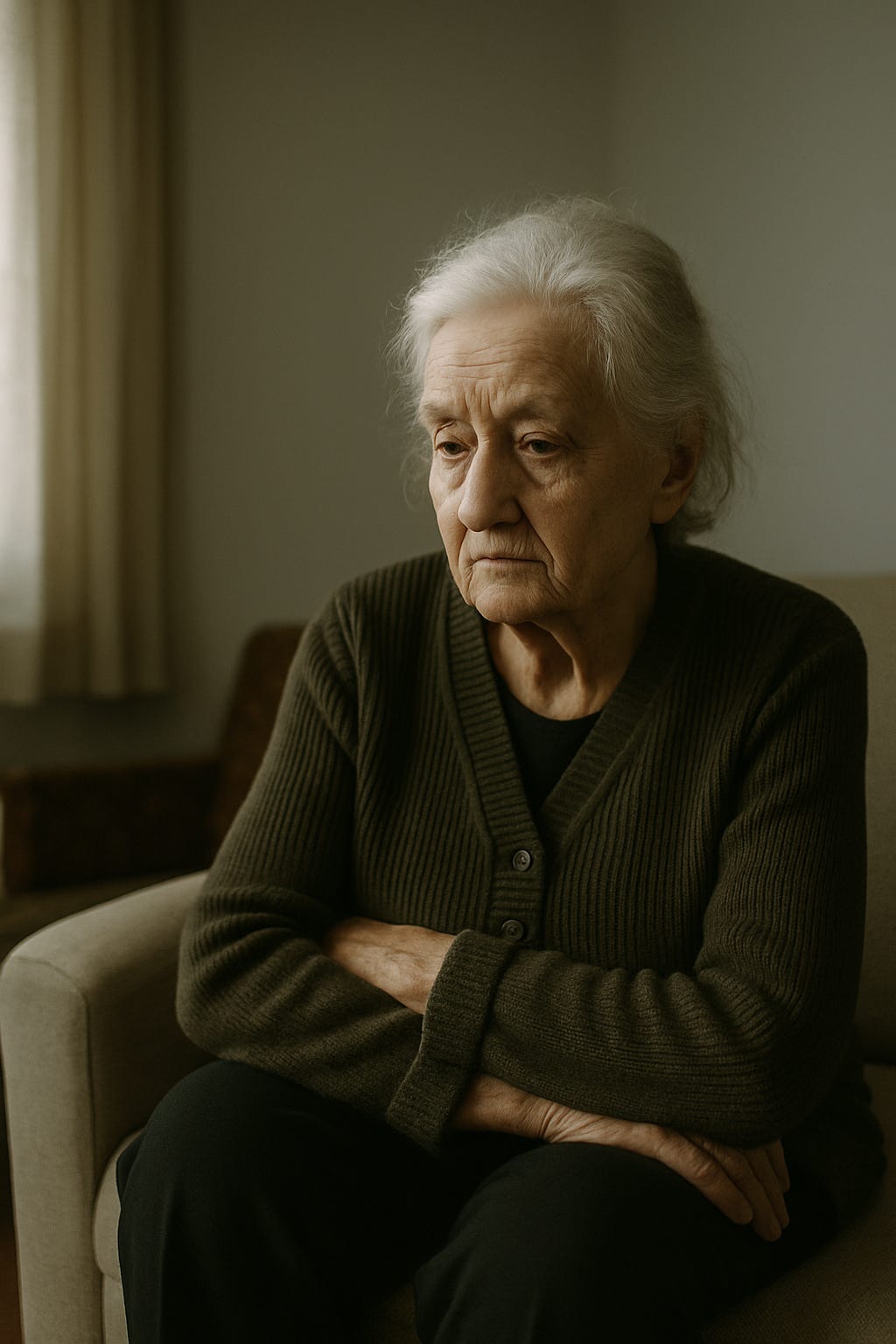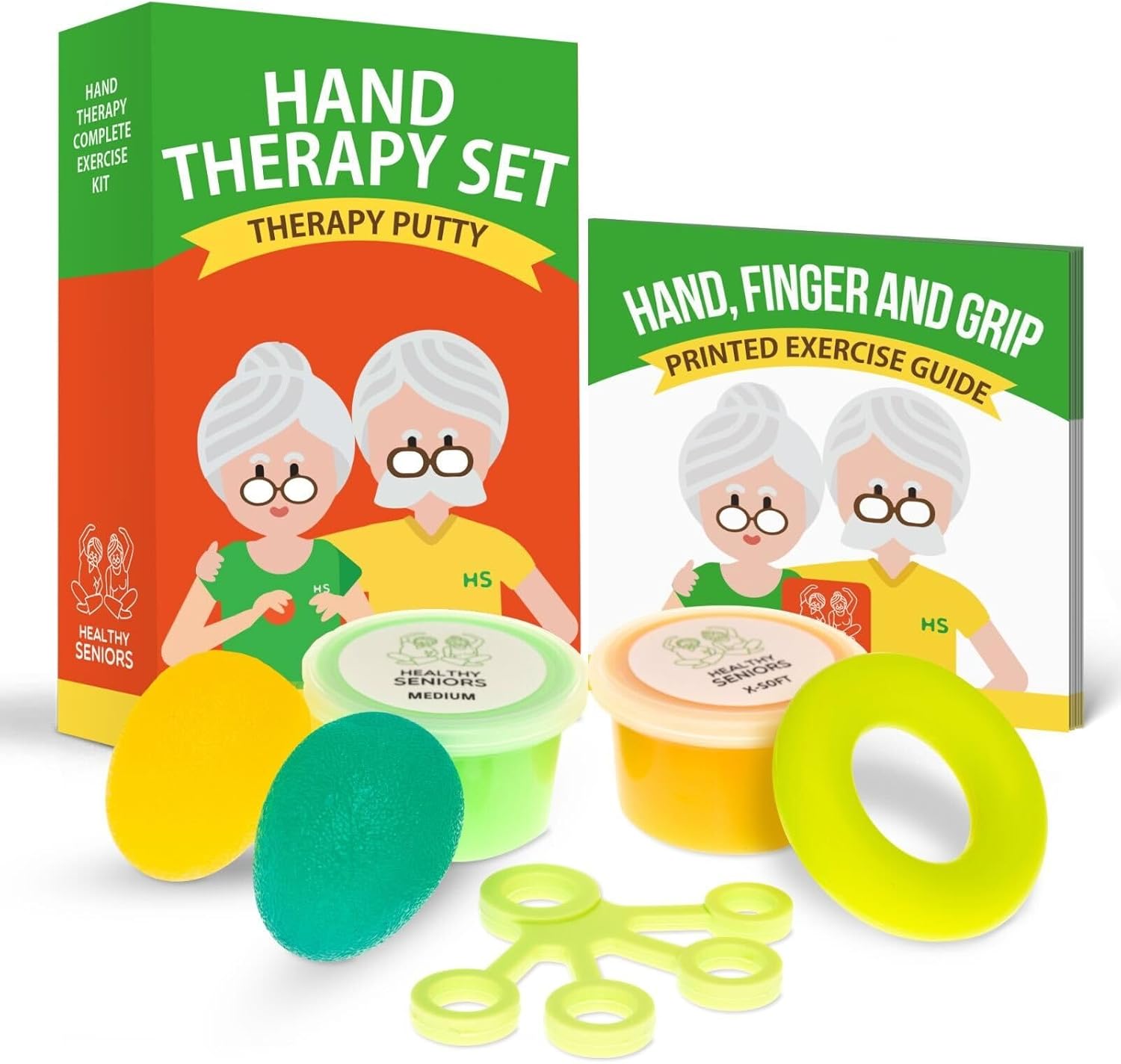
How Do You Keep Going When Everyone Else Is Gone?
In my last article, I told you about the mother of a close friend — a woman who had just lost her husband suddenly to a heart attack. It was the kind of loss that drops into your life without warning and changes everything in an instant.
Before our friend could fly in from abroad, my husband and I went to visit her. I was expecting a full house. After all, it was the day after she’d lost her partner of many decades. She was making funeral arrangements. In my mind, I pictured casseroles on the counter, neighbors popping in, old friends gathering in the living room to hold her up.
But when we arrived, the house was quiet. Too quiet. There was no one there.
No comforting bustle, no familiar faces. Just her — a little stunned, a little lost — trying to manage it all on her own.
It hit me hard. This woman wasn’t just grieving her husband. She was grieving a life — a circle of friends that had slowly disappeared over the years. Some had passed on. Others had moved away. And now, in one of the most vulnerable moments of her life, there was no one left to show up.
And I couldn’t stop thinking: How many people end up this alone — and how do we make sure we don’t?
The Quiet Heartbreak of Outliving Your Friends
One of the hardest parts of getting older isn’t the wrinkles or the aches — it’s the losses. Slowly, almost without noticing, we start attending more funerals than birthdays. One by one, the people who knew our stories — the friends who were there for our weddings, our babies, our struggles — begin to leave.
It’s not just sad. It’s disorienting.
You find yourself wanting to pick up the phone to call someone… and remembering they’re gone. You drive past a favorite café, or a church where you used to sit side-by-side, and realize there’s no one left to share the memory with. Their absence echoes in your everyday life — in the songs on the radio, the smell of a recipe you learned together, the holiday traditions that now feel half-finished.
Even joy starts to feel different. You win a game of cards, or spot the first spring flower, and reach for the words: “I have to tell—” but there’s no one to tell. And that kind of quiet can be the loudest of all.
While family is a beautiful support, it’s not the same. Friends are the ones who chose you, who saw you in all your phases, who knew the version of you from 1964 or 1989 or last week’s bridge club. There’s a freedom in friendships — a certain silliness, honesty, and understanding that doesn’t always exist in family dynamics.
And losing that — losing them — leaves a space in the heart that’s hard to explain.

Some people describe it like being the last page in a book that no one is reading anymore. Others say it feels like being in a house where all the lights have slowly turned off, one by one.
It’s grief, yes. But it’s also a deep longing to still be known — really known — by someone who remembers all the chapters you’ve lived through.
That’s why it matters so much to protect the connections we have now — and to stay open to making new ones. Not to replace what was lost, but to keep our hearts lit up with warmth, laughter, and life.
What You Can Do to Keep (or Rebuild) Your Circle
If your world has gotten a little quieter lately, here are some ways to gently bring people back into it:
1. Say Yes to the Small Invitations
It doesn’t have to be a big event. Coffee with a neighbor, a phone chat with an old friend, a short visit to the senior center — these little yeses create openings for connection.
Often, it’s not the grand gestures that rebuild our social world — it’s the consistent ones.
2. Reignite Old Friendships
Sometimes we lose touch not because something went wrong — just because life got busy. Think of one person you miss talking to. Call them. Write a short note. Send a photo that made you think of them. They might be missing you too.
3. Let Yourself Grieve — Then Reach Out Again
It’s okay to mourn the friends you’ve lost. Deep friendships leave a mark. But don’t let the pain close your heart to new ones. You deserve connection. And there are people out there — of all ages — who need someone just like you.
4. Make Friends Across Generations
Some of the richest relationships can come from unexpected places. A younger neighbor, a fellow church member, your grandchild’s friend’s parent — they may not share your history, but they can be part of your present.
5. Create or Join Something New
Start a weekly walking group. Join a book club. Volunteer. Take a class. Anything that gets you around people with shared interests is a doorway to friendship.
(And don’t worry if it feels awkward at first — everyone feels that way.)
You Deserve People
You really do.
You deserve someone to sit with you in silence. Someone to celebrate your birthdays. Someone who remembers your dog’s name. Someone to say, “I’m so glad to see you.”
It’s never too late to be that person for someone else — and to let someone be that for you.
💡 Caregiver Corner: Helping a Parent Reconnect
If you’re watching a parent slowly become more isolated, here’s how you can help:
1. Name it gently. Try saying, “I’ve noticed you’ve been spending more time alone lately. I wonder if you’re missing having people around.”
2. Offer practical help. Help them find and sign up for local activities, or drive them there if needed. Isolation often comes from logistical barriers, not lack of desire.
3. Encourage intergenerational connection. Bring them along to family gatherings or connect them with younger people who share their interests. It can breathe new life into their day-to-day.
Loneliness may be part of aging — but it doesn’t have to be the end of the story. There is still time, still room, and still so much life left to share.
Try this one thing today: Call someone. Just one person. Say, “I was thinking about you.” You might be surprised by how much it means — to both of you.
Everyone has a story like this — a friend they miss, a moment they wish they could relive, a silence that felt too big. If this touched something in you, I’d love to hear about it. Share your memories, your friendships, your ways of staying connected — because when we tell our stories, we help each other feel a little less alone.
What friend do you still think about? What helped you through the quiet days? Let’s talk about it — right here, together.
Subscribe to our free weekly newsletter at blog.wearehealthyseniors.com to get more stories, tools, and encouragement just like this—delivered straight to your inbox every week.



